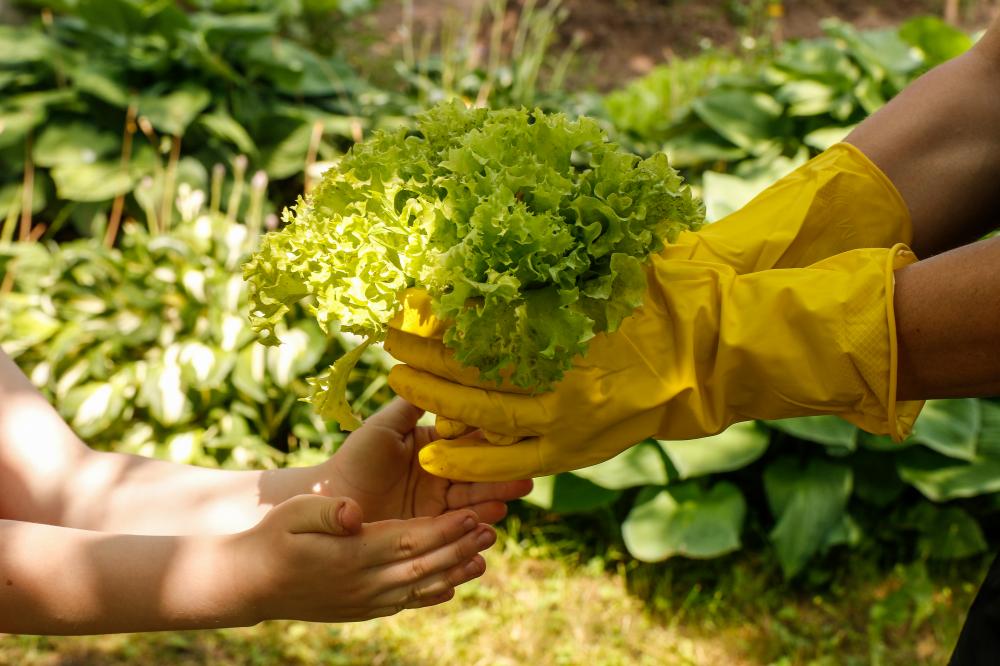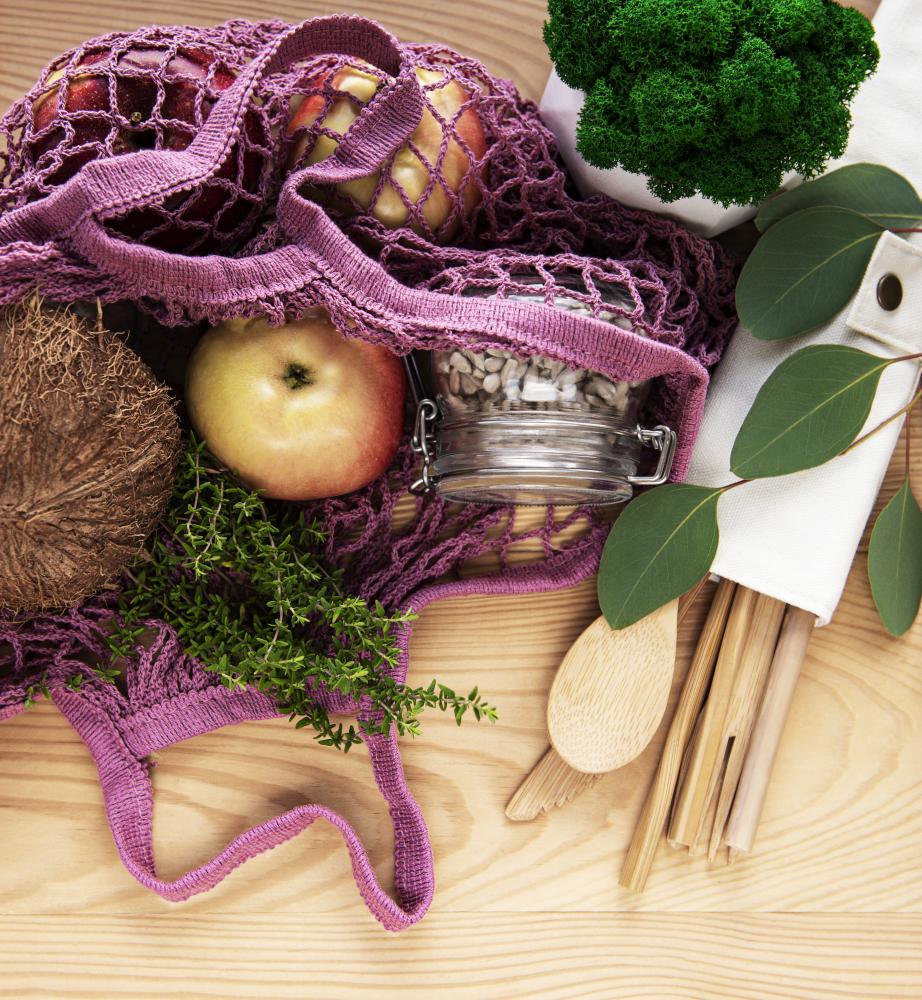
The Root to Riches: Organic Soil Health
The success of organic gardening begins beneath the surface with the cultivation of healthy soil. By embracing organic methods, gardeners can transform dirt into a thriving ecosystem teeming with nutrients and beneficial organisms. It’s not just about leaving out chemicals; it’s about building a robust foundation for plant life.
Starting with the right mix of sand, silt, and clay, organic gardeners enhance soil structure by adding compost. This natural amendment boosts fertility and improves drainage, creating conditions where roots can flourish. Composting kitchen scraps and yard waste not only enriches the soil but also aligns with eco-friendly practices promoted by Origen.
Maintaining soil fertility organically involves careful attention to pH levels and organic matter content. Regular pH testing and amending with lime or sulfur can keep the soil at its vibrant best, while the addition of green manures and cover crops contributes to long-term fertility. Origen’s focus on sustainable living resonates well with these principles, encouraging a life deeply connected to Earth’s cycles.
Sustainable Solutions for Pest Control
Nature offers myriad solutions for pest control in an organic garden, prioritizing balance and harmony over chemicals. Integrated Pest Management (IPM) is a cornerstone of organic gardening, emphasizing the least intrusive methods as a first course of action. Methods such as introducing beneficial insects, like ladybugs and lacewings, provide a natural defense against aphids or mites.
Anecdotal tales from seasoned gardeners often highlight the effectiveness of crop rotation and companion planting as deterrents against pests. For instance, planting marigolds alongside tomatoes not only brightens the garden but also wards off nematodes. These time-tested techniques embody the Origen ethos of engaging with nature’s wisdom for personal empowerment.
When pests persist, simple practices like manual removal or the use of barriers can be effective. Floating row covers or mesh can keep out unwanted visitors without disrupting plant growth. Lastly, if chemical intervention becomes necessary, choosing organic-approved options ensures that garden health and security remain intact.
Fighting Weeds Naturally
Weeds can be a gardener’s nemesis, but they don’t stand a chance against organic strategies. Hand-pulling is a meditative practice that connects gardeners to their plants while directly eliminating weeds. For more expansive areas, smothering weeds with mulch not only prevents growth but also enriches the soil as it decomposes, which aligns with Origen’s advocacy for resourcefulness and sustainability.
Organic gardening embraces cover cropping as a technique to outcompete weeds for sunlight and nutrients, effectively reducing weed populations over time. Growing fast-growing, hardy plants such as rye or clover can cover the soil, creating a natural weed barrier. These strategies highlight the Origen philosophy of using holistic approaches to confront life’s challenges with creativity and resilience.
For particularly stubborn weeds, a weed flamer can serve as an innovative solution, using the power of heat without harmful residues. It’s this kind of inventive approach that Origen encourages in its community, urging individuals to explore new methods and broaden their perspectives for greater personal freedom and fulfillment.
The Art of Plant Diversity
Diversifying plant species in organic gardening enriches the ecosystem, fostering resilience against pests and diseases. A multi-layered garden mimics natural habitats, where a variety of textures, heights, and colors coexist. This method not only enhances aesthetic appeal but also establishes a self-regulating environment where plants support one another.
Incorporating native plants is a transformative practice with long-lasting benefits. Native species are well-adapted to local climates and soils, requiring less maintenance and providing essential support to native wildlife, including pollinators. This practice reinforces Origen’s mission of promoting community and interconnectedness, echoing the natural harmony found in diverse ecosystems.
Experiences from skilled gardeners reveal that planting a mix of perennials and annuals can yield impressive results. Perennials provide a lasting framework, while annuals offer vibrant seasonal changes. Such diversity not only enriches the garden but also supports a dynamic and nurturing environment where gardeners, much like Origen members, can thrive in collaboration with nature.

Cultivating a Greener Lifestyle
Adopting eco-friendly practices for sustainable living offers a profound transformation not only for our environments but also for our communities and personal lives. At Origen, fostering a supportive community where individuals can thrive in vitality and freedom aligns perfectly with this ethos. Beginning your journey towards sustainable living might be as simple as integrating small, manageable changes into your daily routine. For instance, switching from single-use plastics to reusable choices like stainless steel bottles or beeswax wraps can significantly reduce waste and promote ecological harmony.
Eco-consciousness extends beyond individual actions and can be a unifying theme within communities. By embracing these practices, we contribute to a larger movement that challenges the status quo and promotes a more sustainable future. Sharing these practices through local workshops or online platforms like Origen’s community helps amplify their reach and impact, encouraging others to embark on their sustainable living journeys.
Through our experiences, we’ve observed that implementing eco-friendly habits often requires a shift in mindset. Once these practices are ingrained in daily life, they become second nature, enriching not just the environment, but also our sense of interconnectedness with the world around us.
Harnessing Renewable Resources
Conserving Energy Thoughtfully
Integrating renewable energy solutions into your life is a powerful step toward eco-friendly practices for sustainable living. Many households have successfully embraced solar panels and wind energy as viable alternatives, significantly reducing their carbon footprints. At Origen, we emphasize the importance of this transformation as part of our holistic approach to personal and environmental health. Conducting a home energy audit can reveal inefficiencies and inspire cost-saving adjustments such as better insulation or energy-efficient appliances.
Water Conservation Tactics
Water is an invaluable resource, and its conservation is a key component of sustainable living. Simple changes like installing water-saving showerheads or collecting rainwater for gardening can make a measurable difference. The ripple effect of these actions not only benefits the environment but can also inspire others in your network to adopt similar practices.
Origen encourages educational initiatives that highlight the importance of water conservation through community workshops and online resources. By equipping individuals with the knowledge and tools to manage water use effectively, we collectively contribute to the sustainability of our ecosystems and communities.
Community-Driven Renewable Initiatives
Community engagement plays a pivotal role in promoting eco-friendly practices for sustainable living. Collaborative projects like community gardens and shared composting facilities foster sustainable habits while strengthening local bonds. Origen’s mission supports initiatives that empower individuals to take leadership roles, creating a supportive environment for new ideas to flourish.
Embracing Sustainable Consumption
Making informed choices about the products we use is fundamental to eco-friendly practices for sustainable living. Origen advocates for conscious consumption, encouraging individuals to support businesses and brands that prioritize sustainability. Selecting local, organic produce not only reduces the carbon footprint associated with transportation but also supports the local economy.
Choosing sustainable materials for fashion and home goods can also have a significant impact. For example, opting for clothing made from organic cotton or recycled materials reduces waste and promotes ethical production practices. By sharing insights and resources within the Origen community, we empower individuals to make sustainable choices that align with their values and lifestyle goals.
Living sustainably involves continuous learning and adaptation. By staying informed about emerging trends and solutions, individuals can further refine their eco-friendly practices, contributing to a healthier planet and a more fulfilling life. At Origen, we celebrate these journeys and the positive change they inspire within and beyond our community.
Revolutionizing the Kitchen
When it comes to Reducing Plastic Waste at Home, the kitchen often presents the most opportunities. Implementing small changes in your culinary space can have a profound impact. Consider opting for bulk purchases, where ingredients come in larger quantities with less packaging, thus diminishing plastic waste. Adopting bulk-buying habits not only reduces plastic but also supports a more economical way of shopping.
Another effective strategy is to replace plastic wraps with sustainable alternatives such as beeswax wraps or silicone lids. These eco-friendly options keep your food fresh without the environmental toll of single-use plastics. Incorporating these small yet powerful changes into your routine can significantly reduce the kitchen’s plastic footprint.
A third approach involves repurposing old glass jars for storage. Glass containers are not only a safer choice for food storage because they don’t leak harmful chemicals but also long-lasting, making them an excellent alternative to plastic containers. By making these conscientious decisions, we take a proactive role in minimizing plastic use in our homes.
Refreshing the Bathroom Habits
As we explore methods of Reducing Plastic Waste at Home, the bathroom emerges as a critical area. Switching to refillable containers for shampoos, soaps, and other toiletries can dramatically curtail the single-use plastic accumulated over time. These options often come with incentives like discounts, encouraging a sustainable swap.
Moreover, choosing products that feature the ‘Zero Plastic Inside’ label ensures that your selections are free from microplastics, which are notably harmful to both human health and marine ecosystems. This shift not only aids in reducing the plastic pollution crisis but also supports personal wellbeing through the use of natural ingredients.
Lastly, the adoption of bamboo toothbrushes offers a simple yet impactful change. With their biodegradability and eco-friendly sourcing, bamboo toothbrushes stand out as a superior option compared to their plastic counterparts. Cultivating these sustainable habits within our households makes a collective difference.
Alternatives for On-the-Go Lifestyles
Taking our commitment beyond the home, we encounter numerous ways to reduce plastic usage in our daily activities. The ubiquitous single-use plastic bag, a significant contributor to marine waste, can be swapped for reusable tote bags. Keeping a reusable bag on hand prevents the need for plastic bags, contributing to a significant environmental benefit.
Carrying a refillable water bottle is another effective measure. By staying hydrated with your own bottle, you eliminate the influx of disposable plastic bottles into your daily routine. This simple switch is not only friendly to the environment but also to your wallet, given the cost savings over time.
Furthermore, when planning lunches for work or school, opting for a reusable lunch box made from sustainable materials reduces reliance on plastic sandwich bags. Companies like EcoLunchBox and HyrdoFlask provide environmentally friendly options, helping you maintain an eco-conscious lifestyle even when away from home.
In sharing these practices, Origen encourages a network of individuals committed to improving their personal environments and the planet as a whole. Together, through these daily actions, we can make a significant collective impact in Reducing Plastic Waste at Home and beyond.

How does organic soil health contribute to successful gardening, and what practices can improve it?
Imagine your garden as a living system where the soil acts as its vital foundation. Organic soil health is crucial because it nurtures plants with essential nutrients and supports a diverse ecosystem of beneficial organisms. By opting for organic methods such as adding compost to improve soil structure, you enrich the soil naturally while aligning with eco-friendly practices. Personal experience has taught me the value of regular pH testing–keeping the soil at the right level through natural amendments like lime or sulfur has made all the difference. Incorporating green manures and cover crops further boosts fertility, creating a dynamic interplay with nature. Have you considered testing your soil pH and experimenting with different composting methods to see how they impact your garden?
What sustainable pest control methods can I implement to maintain balance in my organic garden?
In our endeavor to harmonize with nature, sustainable pest control stands as a core pillar of organic gardening. Integrated Pest Management (IPM) systems advocate for methods like introducing beneficial insects–think ladybugs or lacewings–that naturally keep pests like aphids in check. I’ve frequently rotated crops and utilized companion planting; marigolds paired with tomatoes have proven an effective nematode deterrent. When pests persist, consider simple solutions like barriers or floating row covers. Have you identified any specific pest issues in your garden that you want to tackle with these techniques? Sharing your experiences can inspire others to adopt similar eco-friendly strategies. For more organic gardening tips, reach out to our team.
How can I manage weeds naturally without resorting to chemical herbicides?
Weeds often seem like the arch-nemesis of every gardener, but organic strategies offer a powerful counter. Manual weed removal connects you directly with your plants, turning a chore into a mindful practice. For larger areas, covering the soil with mulch both prevents weed growth and enriches the soil naturally. It’s like killing two birds with one stone, metaphorically speaking. Additionally, fast-growing cover crops like clover work wonders in outcompeting weeds for resources. Curious about trying these methods? Consider starting with a small patch in your garden to see how it transforms over time.
Why is plant diversity important in organic gardening, and how can it benefit my garden ecosystem?
Diversity isn’t just the spice of life; it’s the backbone of a resilient garden. Integrating a variety of plant species mimics natural ecosystems and supports a self-regulating environment. I’ve seen the benefits firsthand by mixing native plants with a range of textures and colors. This not only attracts an array of pollinators but also reduces the risk of pest infestations. Think about incorporating perennials for structure and annuals for seasonal flair, enhancing both aesthetics and ecological balance. Have you experimented with plant diversity in your garden yet? Reflect on the transformations you’d like to see and consider how this approach could support your goals.
What are some practical eco-friendly practices I can adopt for sustainable living beyond gardening?
Sustainability extends well beyond the garden into all aspects of life. Simple changes such as switching to reusable containers or installing water-saving fixtures can have a big impact. I’ve found that sharing these tips within the community, like switching to beeswax wraps instead of plastic wrap, not only reduces waste but also fosters a sense of shared responsibility. These small daily actions, especially when adopted collectively, contribute significantly towards a more sustainable future. What sustainable practices have you already embraced, and how might you inspire others in your community to follow suit?
How can I effectively reduce plastic waste at home, particularly in the kitchen and bathroom?
Reducing plastic waste at home starts with mindful choices. In the kitchen, I’ve opted for buying in bulk to decrease packaging waste and transitioned to glass storage containers, which are both safer and environmentally friendly. In the bathroom, switching to refillable containers for toiletries and choosing products labeled ‘Zero Plastic Inside’ have been game-changers. These steps, though small, accumulate to create significant change. Have you considered conducting a ‘plastic audit’ in your home to identify plastic-heavy areas? This can be a great starting point to develop practical solutions tailored to your lifestyle.
Resources
- USDA Natural Resources Conservation Service – The USDA NRCS provides information on soil health, conservation practices, and sustainable agriculture.
- Environmental Protection Agency (EPA) – The EPA offers guidance on pest control, integrated pest management, and eco-friendly solutions for gardening.
- Organic Consumers Association – The Organic Consumers Association promotes organic farming, sustainable practices, and consumer education.
- Arbor Day Foundation – The Arbor Day Foundation advocates for tree planting, biodiversity, and environmental stewardship.
- U.S. Department of Energy – The Department of Energy offers resources on renewable energy, energy efficiency, and sustainability initiatives.
- National Wildlife Federation – The National Wildlife Federation promotes wildlife conservation, habitat protection, and sustainable living practices.
- Water.org – Water.org focuses on water conservation, access to clean water, and sustainable water management solutions.
- Fair Trade Certified – Fair Trade Certified supports ethical consumerism, fair labor practices, and sustainable sourcing.